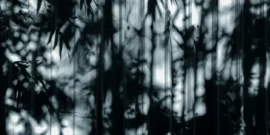A Primer on Psychic Techniques

While some psychics claim to possess supernatural abilities, one cannot avoid skepticism and suspicion of fraud in the face of the evidence. Let’s take a brief look at the modus operandi of psychics and try to figure out what’s going on here. At the outset, I will acknowledge that not all psychic phenomena are hoaxes, as some may involve genuine contact with spirit entities, though not deceased human spirits.
Fishing: A Common Plan for Psychic Techniques
In contemporary psychic readings, a common approach is akin to playing a game of “20 Questions.” Psychics often use leading questions to elicit responses from their clients. For example, they might ask, “Do you have a relative whose name begins with S? Or R? Or maybe D?” They keep mentioning common letters until they get a response. By mentioning such common letters, they increase the likelihood of guessing the deceased person’s name. They are literally “fishing” for information.
Or they might say, “Are you going through a change in your life? I sense that you’re going through a change in your life.” Almost everyone is going through some kind of change. Again, they are just “fishing.”
Another example involves asking about a piece of jewelry from a deceased relative: “I sense that your grandmother has passed away and that you have a piece of jewelry from her. I feel that this piece of jewelry is a closed circle.” First, note that many people have a grandmother who has passed away. Also note that it is common for people to have a piece of jewelry from a dead relative. Third, note that a “closed circle” can refer to a ring, necklace, or bracelet—the most common types of jewelry.
Psychics may also fish for information about how a person died. They may say, “I sense that the person experienced a pain in the chest area.” If he gets a positive nod, he may ask if the person died of a heart attack. (Of course, a large percentage of people in the United States die of heart attacks.) This fishing technique can be very convincing to the gullible.
Psychics shine brightest when they are in front of a studio audience. They seem to have a lot of good guesses. But consider this: There may be as many as 200 people in a typical studio audience. If each person in the studio audience knows 50 other people (a conservative estimate), that means there is a potential pool of 10,000 people who could relate to the question the psychic is asking. There is bound to be a response when the psychic says something like, “I sense that someone here has a relative or close acquaintance who has recently had chest pains.”
Psychic Techniques: Beware of Frauds
Well-known psychics such as James Van Praagh, Sylvia Browne, John Edward, and Char Margolis have all written books warning against fraudulent psychics. One cannot help but wonder if they are doing this to divert attention from their own fraudulent practices. Their method seems to be: “Making the other guy look bad makes me look good.” By warning people about psychic scams, they make themselves look like genuine psychics.
Related to this, it is worth noting that psychologists often point out that people tend to condemn in others what they themselves are most guilty of. Could it be that these psychics condemn the fraud of other psychics because they know deep down that they, too, are frauds? The evidence seems to support this view.
Not All Psychic Phenomena Are Hoaxes
While there is undoubtedly a great deal of fraudulent activity going on among some psychics today, it would be wrong to conclude that all psychic phenomena are fraudulent. Sometimes there is genuine contact by psychics with spirit entities—but the spirit entities are not deceased human beings, but rather demonic spirits. My old colleague Walter Martin rightly warned that “there are many Christians, unfortunately, who suffer from the illusion that all Spiritism, or spiritistic evidence, is fraudulent, and prefer to rest in the falsely secure belief that Spiritism can never be demonically empowered.”[1] Martin also warned: “Not all psychic or spiritistic phenomena can be exposed as fraudulent. There is a spiritual dimension that cannot be ignored. Authentic spiritists draw their power from the one the Bible calls ‘a roaring lion’ who seeks ‘whom he may devour’ (1 Peter 5:8), who is Satan. Spiritism… directly contradicts the Bible, God’s Word.”[2]
Let us not forget that the apostle Paul sternly warned in 2 Corinthians 11:14 that “Satan disguises himself as an angel of light.” We can infer from this that Satan and his horde of demons (fallen angels) may be posing as dead people to psychics. They do this for a malicious, sinister purpose—to lead people away from the true Christ and God of the Bible. In the process, they spread the doctrines of demons (1 Timothy 4:1-3). These demonic doctrines include such ideas as: death is not to be feared; all people go to heaven regardless of religion; and the dead can communicate with the living.
Christian, beware!
Wrap up on Psychic Techniques
A variety of factors explain the modus operandi of psychics. Some psychics are involved in outright fraud. These psychics fish for information but make it appear that they’ve obtained it supernaturally. Other psychics are in genuine contact with spirit entities—that is, demonic spirits masquerading as dead people. Thus, as former psychic and occultist Marcia Montenegro notes, “Instead of trying to label all mediums as frauds, why not consider that what is happening results from a combination of factors: coincidence, good guessing, the mediums’ imaginations, generalities, demonic sources, and the client’s belief and interpretations to fit the situation?”[3]
One thing is certain: We must approach this issue with great caution and discernment.
I invite you to consult my article, “A Christian Assessment of Psychics and Ghosts,” posted here at the John Ankerberg Show website.








